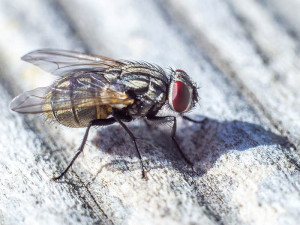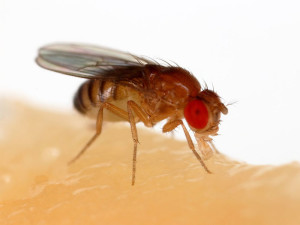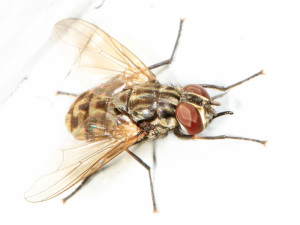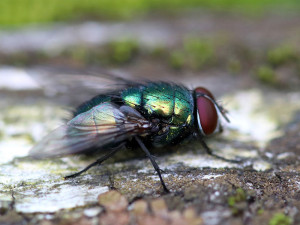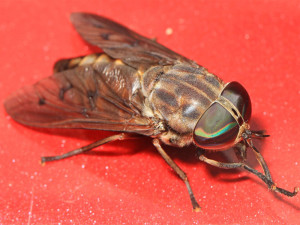Fly infestation
House fly (Musca domestica)
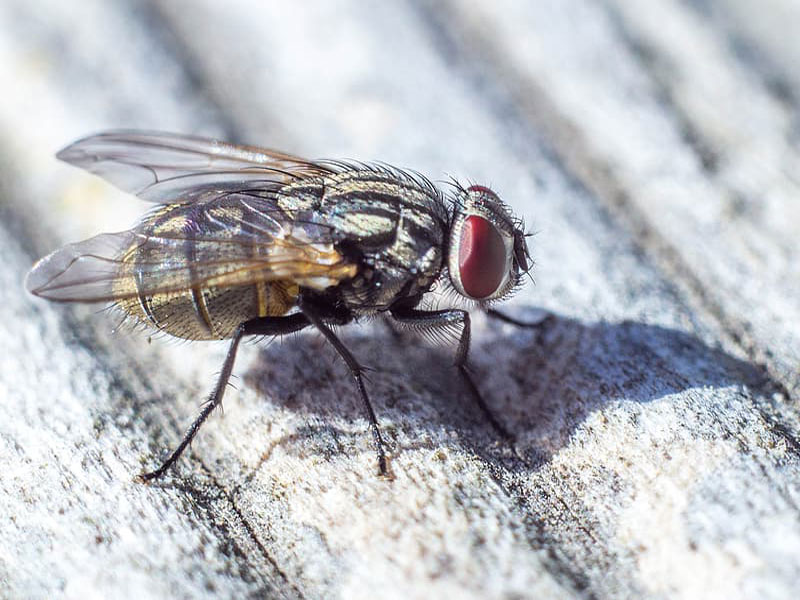
Flies can be very annoying and unpleasant pests, moreover, they pose a health risk to people and livestock as they may transmit a large number of diseases, including enteric infections, such as salmonella, e. coli., dysentery, diarrhea, typhoid, cholera and others. Flies also carry and spread viral infections like poliomyelitis, eye infections, such as trachoma (causing blindness) and epidemic conjunctivitis, as well as skin infections, such as cutaneous diphtheria, leprosy, yaws and others. Compared to other pests that carry and transmit various diseases, flies are responsible for some of the highest numbers of staff members calling sick after getting infected by the disease-causing organisms.
While flies crawl and feed outdoors, they can pick up disease-causing organisms. Most of those organisms may survive for a few hours, if they stick on the body of the fly. If they are ingested though, they could survive inside the fly’s gut for up to several days, increasing the risk of contamination. Some fly species may even bite causing stress and even severe pain. Stable flies, for example, are known to suck blood from pets and sometimes even humans, blow flies feed on blood from bird nestlings and horse flies feed on horse blood. Flies may as well contaminate food sources, which is unacceptable when it comes to businesses that deal with food. If a fly problem has developed and is left uncontrolled, it may turn into a serious infestation, which requires professional pest control treatment.
Fly control
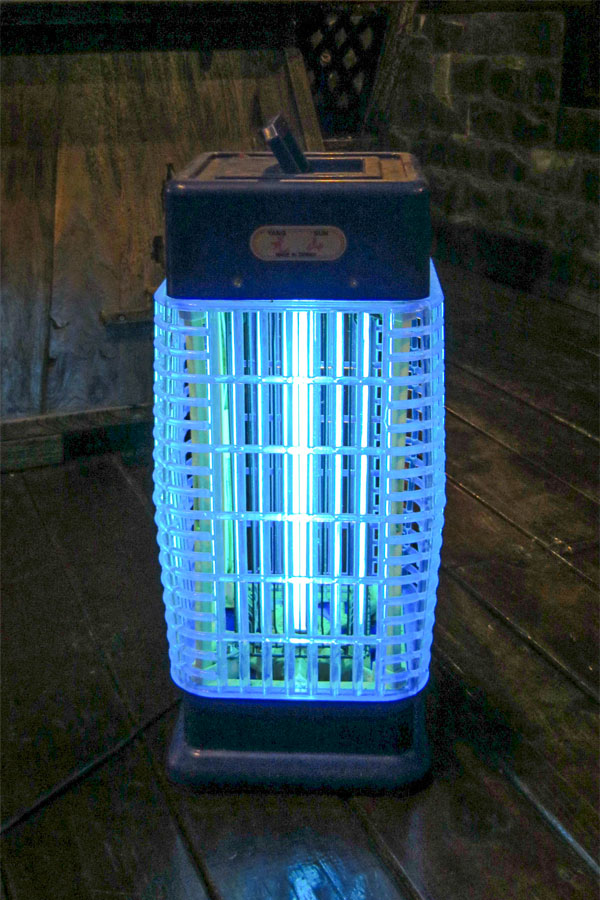
Fly control usually involves proofing of the property, in order to deter flies from accessing it, positioning of fly traps and electric fly killers (EFKs), sometimes applying insecticides or other non-chemical solutions. Prime Pest Control offers integrated fly management programmes, which have proven high success rates and, at the same time, safe and cost-efficient methods. Depending on the type of property and the customer’s requirements, our fly removal service will adhere to any business or professional standards and pest legislation. Our British Pest Control Association trained (BPCA) pest technicians have been successfully getting rid of fly infestations across East, West, South and North London for many years now.
The methods for fly removal and extermination that our specialists implement with their strategy will be tailored to your needs or business standards. We always follow the best practices, as well as some innovative methods for fly control, which have proven their high efficiency. Prior to any type of fly treatment our pest experts will carry out a detailed inspection, which will determine the most appropriate fly control strategy. We usually tackle or prevent fly infestations using various methods. These may involve proofing of the property and deterring flies from accessing it with fly screens, positioning of UV electric fly killers and traps, applying insecticides by surface spray or using ultra low volume (ULV) machines, fumigation.
The non-toxic methods for fly pest control may involve biological control using parasitic wasps and carnivorous plants that will hunt the flies. Flies breed rapidly and sometimes to get rid of an established cluster fly infestation we may use combined techniques and innovative methods for better efficiency. In order to achieve the best results with the least number of treatments, our customers will need to cooperate with our pest technicians and strictly follow all the instructions before and after the treatments. People underestimate flies as pests but the truth is that these flying insects spread various diseases, posing serious health risks. To prevent this from happening, there are certain recommendations about the ways you can keep flies out of your property. These methods for fly control and prevention are also relevant to the control of other pest insect species – crawling and flying.
In case that there are dead flies after a treatment, you should remove them as they are in the menu of other pests. If you have a pond or a lake nearby or at your property, a natural prevention method can be used by introducing goldfish to the water sources.
There are thousands of fly species around the globe and many are yet to be discovered. In London and across the UK a few species are causing nuisance as well as spreading disease, such as the house fly, fruit fly, stable fly, blow fly and horse fly among others. Some species of flies are able to bite and although they are usually attacking livestock, in urban areas they bite people, which could be a very painful and unpleasant experience.
Flies feed and breathe in animal wastes or other decaying organic matter. In this type of environment flies may pick up dangerous bacteria and viruses. These microbes can be transmitted to people and animals usually through contaminated food and utensils. Flies breed rapidly going through an egg, larva, pupa, and adult stages. Depending on the temperature and availability of food, these flying pest insects will develop from egg to fully-grown adult within one week. After mating, the female fly will lay a few batches of eggs, which contain a hundred eggs each. The whole life cycle of flies is usually not more than 30 days.
Fly treatments and control are aiming to primarily eliminate the breeding sites, where eggs and larvae are present. Any access to animal or food waste should be denied, which will greatly decrease the reproduction rates. The water sources and moisture may also attract some species of flies and other pest insects, so you should make sure that you do not have a problem with pipe leakage or damp. The best practices for fly control and extermination also recommend the use of insecticides as a final measure, due to the ability of flies to quickly develop resistance to the most common sprays.

